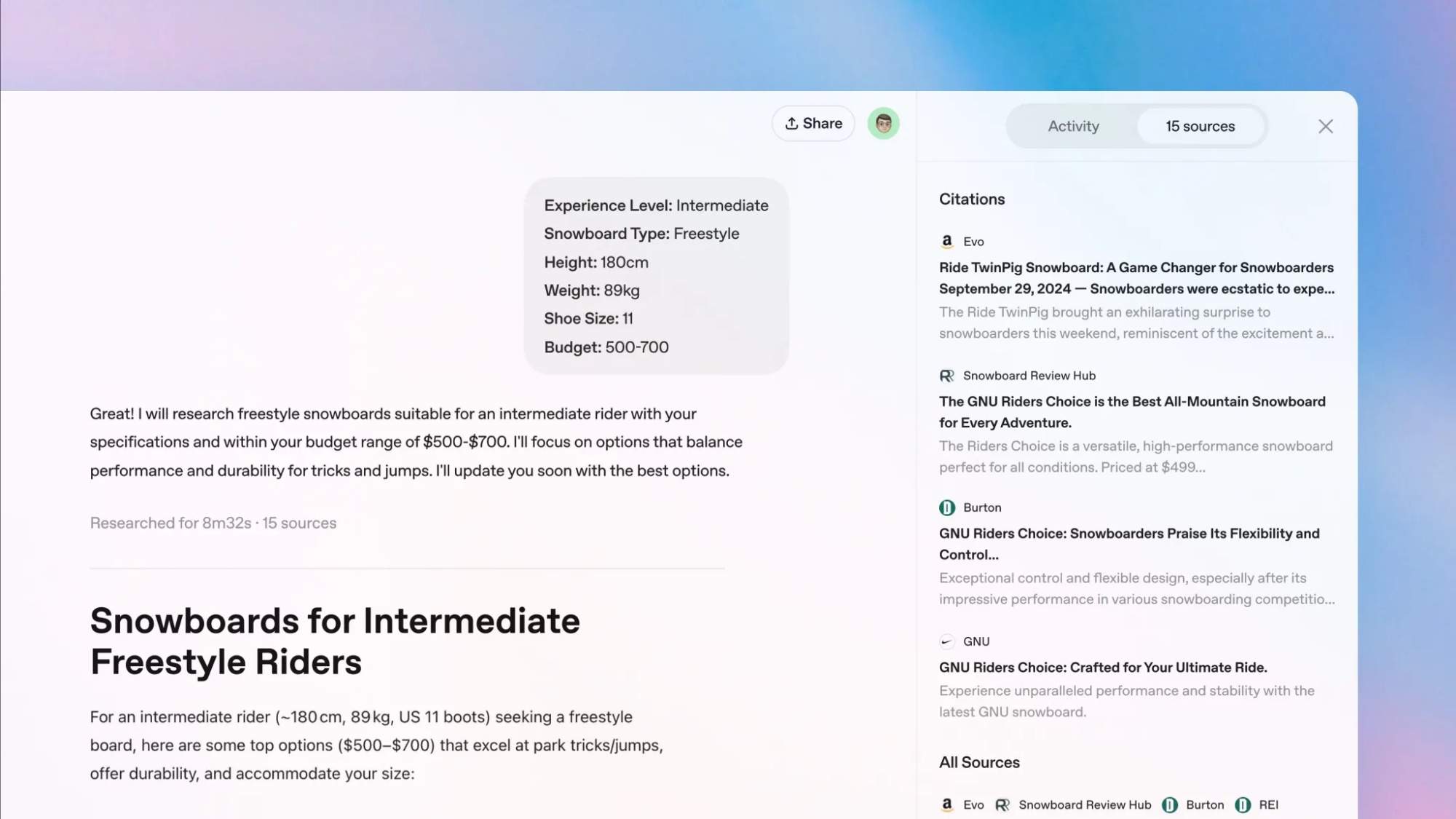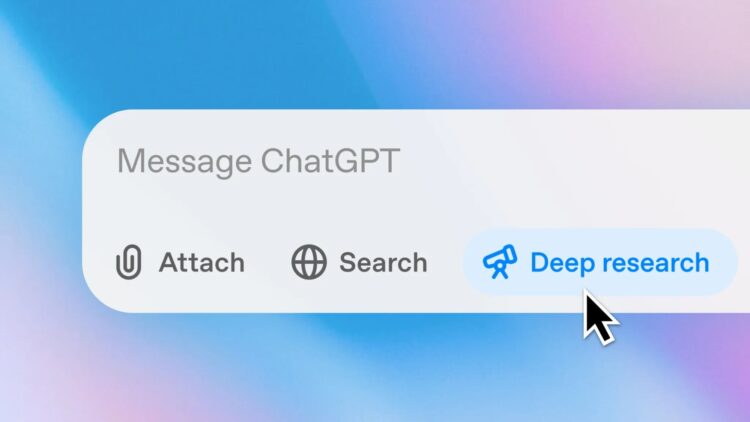OpenAI has launched “Deep Research,” a new ChatGPT feature designed to analyse and synthesise information from hundreds of online sources to generate detailed reports. Aimed at professionals in finance, science, policy and engineering, it provides in-depth research beyond quick answers. The firm also suggests its use for complex purchasing decisions, such as buying cars, appliances and furniture.
Deep Research is revealed to be powered by a version of OpenAI o3 optimised for web browsing and python analysis. Users can input queries alongside uploaded files, including PDFs and spreadsheets, allowing ChatGPT to process and compile responses within 5 to 30 minutes. A side panel which tracks progress and provides citations as the research is conducted is also available when using the new tool.
Powered by a version of OpenAI o3 optimized for web browsing and python analysis, deep research uses reasoning to intelligently and extensively browse text, images, and PDFs across the internet. https://t.co/AJHftUBs4m
— OpenAI (@OpenAI) February 3, 2025
Currently, Deep Research produces only text-based outputs, but OpenAI plans to introduce embedded images, data visualisations, and other analytical elements. Future updates will also include integration with specialised and subscription-based data sources to enhance its research capabilities.
Despite its advanced capabilities, Deep Research has some limitations, including occasional factual inaccuracies, difficulty distinguishing between authoritative sources and misinformation, and minor formatting issues. However, OpenAI expects these to improve over time, while a more cost-effective version is revealed to be in development to allow for higher usage limits.

Deep Research is now available to ChatGPT Pro users in select regions with a 100-query monthly limit, with expansion planned for Plus, Team, and Enterprise users. OpenAI aims to roll it out to Plus users within a month and increase query limits for paid users in the near future. The feature is currently web-only, with mobile and desktop app integration expected later this month.
(Source: OpenAI, via X / official website)
Follow us on Instagram, Facebook, Twitter or Telegram for more updates and breaking news.



